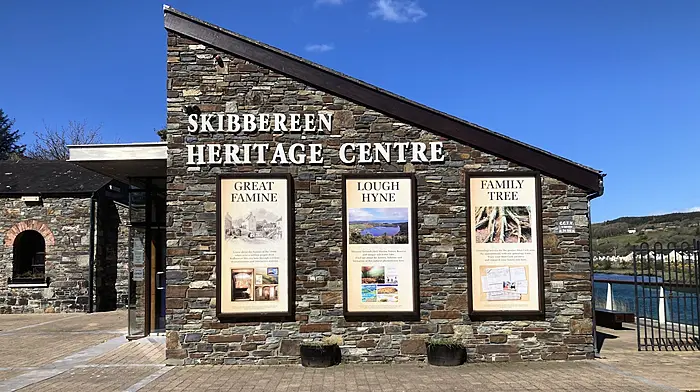A BANTRY man who brought a judicial review against the ESB and An Bord Pleanala in respect of a proposed windfarm development near Drimoleague, and who won his fight in the High Court, has said the ESB was ‘riding roughshod over people’s rights.’
On March 8th the court was informed that both parties agreed that both planning permissions issued by Cork County Council in respect of a grid link – that would connect a proposed windfarm at Derreenacrinnig to a substation at Ballylickey – should be quashed.
Ian Collins of Maulakieve, Bantry, told The Southern Star: ‘This is an extremely complicated issue, but my argument all along was that there was a specific condition in planning that would not allow the proposed windfarm be connected to the substation without further permission for the grid link, or overhead line.’
He said the Council’s decision to grant planning permission for the grid link was made last July, which meant he had just eight weeks in which to file the judicial review.
Ian Collins explained that when the ESB started building the grid link in 2018 he questioned it with the Council. The Council agreed that the work must stop, and it did.
However, the ESB applied for ‘leave to apply’ for permission called ‘substituent consent’ to An Bord Pleanala for the part of the work they had already built.
Then the ESB looked for a second grant of planning for the work that had not yet been constructed.
Ian Collins said he was not permitted to make a submission at the ‘leave to apply for substituent consent stage’ and the Council gave the ESB planning permission to finish the unconstructed part of the grid link.
At that stage, Ian Collins said he made a submission to An Bord Pleanala against the Council’s decision on the grounds that the two pieces of the grid link had been split when it should have been a single planning application.
An Bord Pleanala decided on both cases – the first and second attempt to ratify the permission for the grid link – at the same time.
The Bord not only disallowed Ian Collins’s appeal against the planning permission, they also gave the ESB consent to retain the piece that was already built.
That’s when Ian Collins started the judicial review proceedings.
He said he took it on many grounds, including the fact that he had not been allowed to participate at the application for leave to apply for substitute consent stage.
‘Splitting the application into two things constituted project splitting and that goes against the Environmental Impact Directive,’ according to Mr Collins.
‘These are a set of rules under EU law and it was my contention that the ESB didn’t follow them.’
When the matter came before the High Court, both the ESB and An Bord Pleanala decided not to contest the matter and they consented to all planning permissions being quashed.
Mr Collins explained his decision for engaging in such a lengthy and difficult process saying, ‘I knew from day one that there was no permission for this line and I saw the ESB starting to construct it.
‘They were riding roughshod over people’s rights. They knew they had to apply for planning permission and they didn’t do it,’ he said.
Ian Collins is also of the opinion that the proposed grid link route – which was earmarked for the hill between Castledonovan and the Mealagh valley – has ‘no logic to it.’
‘It’s just not good engineering practice,’ he said. ‘If it was less obtrusive – and was running in the valley instead of along the top of a hill – I would not have an objection.’







